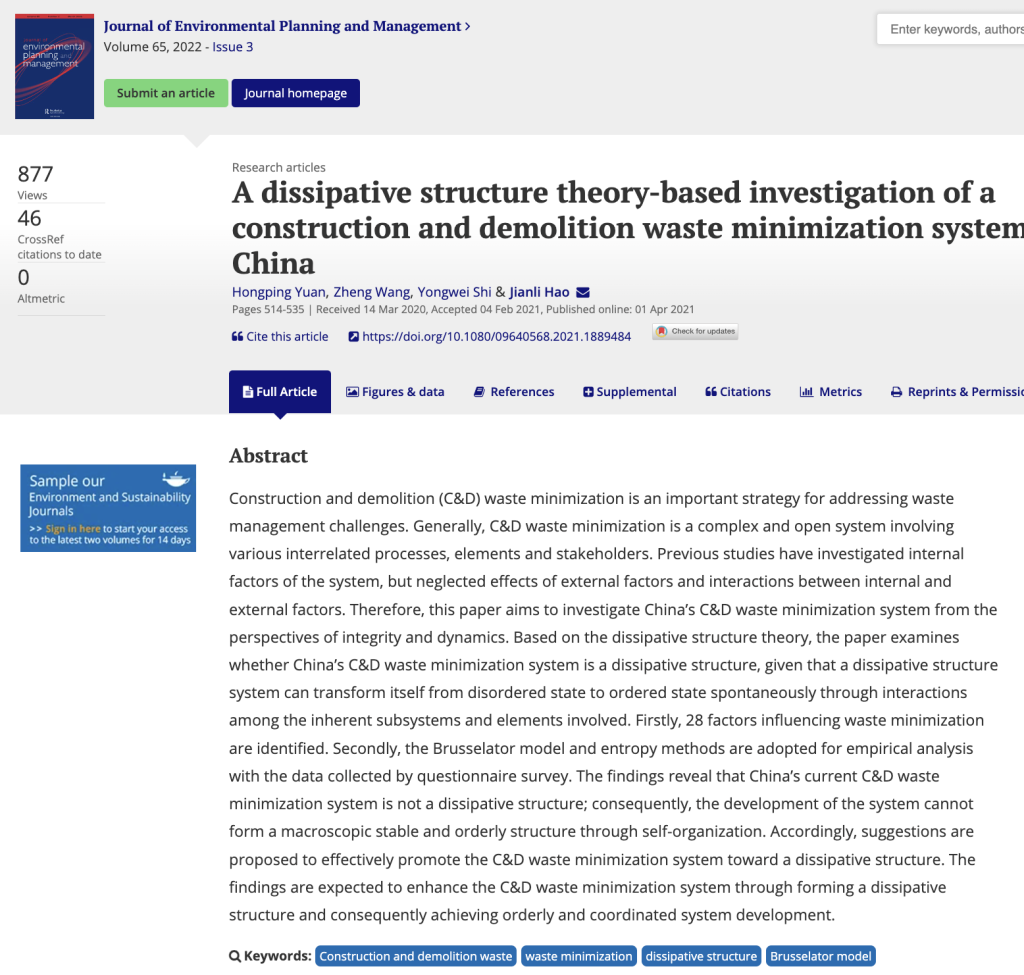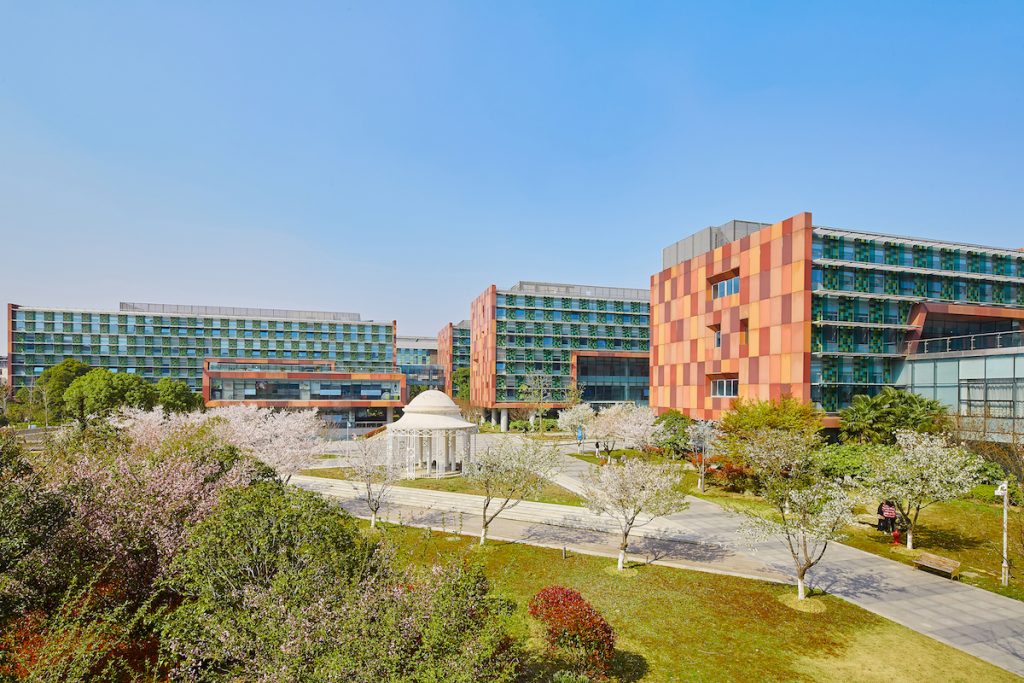22 Aug 2024
Recently, the Suzhou Municipal Government announced the results of the 2022-2023 Suzhou Outstanding Natural Science Paper Awards, with 398 papers receiving accolades across various fields, highlighting the city's high-quality advancements in natural science research.
Among the winners, a collaborative paper authored by Dr Jian Li Hao from the School of Design at Xi'an Jiaotong-Liverpool University, titled "A dissipative structure theory-based investigation of a construction and demolition waste minimization system in China," stood out for its unique perspective and significant academic contribution.

This paper addresses the critical issue of construction and demolition (C&D) waste minimization in China. By applying dissipative structure theory, Dr Hao’s team explored the C&D waste minimization system from the perspectives of integrity and dynamics. The research goes beyond previous studies that primarily focused on internal factors by systematically analyzing the interactions between internal and external factors affecting the system.
Utilizing the Brusselator model and entropy methods, the team conducted an empirical analysis of data collected via surveys. The findings reveal that China’s current C&D waste minimization system has not yet evolved into a stable dissipative structure, meaning it struggles to achieve a macro-level stable and orderly state through self-organization. Accordingly, the paper proposes several recommendations aimed at fostering the development of a dissipative structure within the C&D waste minimization system, offering practical solutions for improving waste management in China.

Since its publication in September 2021, the paper has garnered widespread attention in the academic community and has been recognized as a highly cited paper in the top 1% by ESI, underscoring its influence in the fields of engineering management and environmental governance. This award not only affirms the diligent efforts of Professor Hao and her team but also provides valuable insights and innovative approaches for future interdisciplinary collaborations in engineering management, waste governance, and urban sustainability.
Dr Hao expressed that future research will continue to focus on urban infrastructure development and sustainability, exploring the integration of new technologies with traditional management models, contributing further to addressing global waste management challenges.
Story provided by Department of Civil Engineering
Edited by Yi Qian
22 Aug 2024








